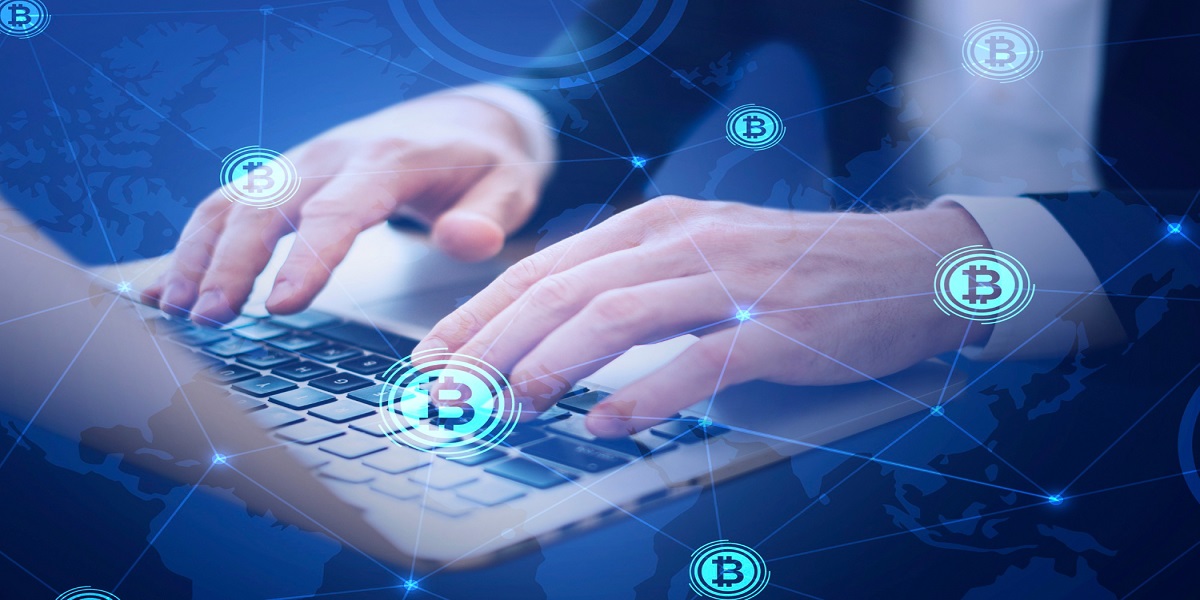Must-have blockchain developer skills in 2024
- By Bhoomika Kukadiya
- 17-01-2024
- Blockchain

What Is a Blockchain Developer
A blockchain developer is a specialized software engineer who designs, develops, and maintains blockchain-based applications, systems, and solutions. Blockchain technology is the underlying framework for cryptocurrencies like Bitcoin and Ethereum, but its applications extend far beyond digital currencies. Blockchain developers play a crucial role in creating decentralized and secure systems that leverage the unique properties of blockchain.
Key responsibilities and skills associated with blockchain developers include
Understanding Blockchain Fundamentals
A blockchain developer should have a solid understanding of the core concepts behind blockchain technology. This includes knowledge of decentralized networks, distributed ledger technology, consensus algorithms, cryptographic techniques, and smart contracts.
Programming Skills
Proficiency in programming languages commonly used in blockchain development is essential. Depending on the blockchain platform, languages such as Solidity (for Ethereum), C++, Java, Python, or Go may be required. Developers must be able to write and optimize code for the specific blockchain they are working on.
Smart Contract Development
Smart contracts are self-executing contracts with the terms of the agreement directly written into code. Blockchain developers need to be skilled in designing, coding, and deploying smart contracts, which are integral components of many blockchain applications.
Decentralized Application (DApp) Development
DApps run on a blockchain network and interact with smart contracts. Blockchain developers must be familiar with the architecture, design principles, and tools required for developing DApps. This involves creating user interfaces and integrating them with the blockchain backend.
Knowledge of Blockchain Frameworks
Familiarity with blockchain frameworks is crucial for developers. Different blockchains have their own frameworks, such as Ethereum, Hyperledger, Binance Smart Chain, and others. Understanding these frameworks helps in efficiently building and deploying blockchain solutions.
Understanding Consensus Mechanisms
Different blockchains use various consensus mechanisms to validate and agree on transactions. Blockchain developers should be well-versed in consensus algorithms like Proof of Work (PoW), Proof of Stake (PoS), Delegated Proof of Stake (DPoS), and others.
Security Awareness
Security is paramount in blockchain development. Developers need to be aware of potential vulnerabilities and implement robust security measures. This includes secure coding practices, encryption, and protection against common attack vectors.
Version Control with Git
Git is a version control system widely used in software development, including blockchain projects. Software developers should be proficient in Git to manage and track changes in their codebase, collaborate with others, and contribute to open-source projects.
Integration of APIs and External Systems
Many blockchain applications require interaction with external systems through APIs (Application Programming Interfaces). Blockchain developers should be capable of integrating blockchain solutions with external databases, services, or other APIs.
Continuous Learning and Adaptability
The blockchain space is dynamic, with new technologies and updates regularly emerging. Blockchain developers need to stay informed about the latest developments, best practices, and industry trends. Being adaptable and willing to learn is crucial in this rapidly evolving field.
Blockchain technology has gained significant traction in recent years, and skilled developers are in high demand to harness its potential. Here are 10 must-have skills for aspiring blockchain developers:
Solid Understanding of Blockchain Fundamentals
Grasp the core concepts of blockchain, including decentralized networks, consensus algorithms, cryptographic hashing, and distributed ledger technology. A solid foundation in these fundamentals is essential for any blockchain developer.
Proficiency in Blockchain Programming Languages
Learn and master programming languages commonly used in blockchain development, such as Solidity (for Ethereum), C++, Java, Python, or Go. Different blockchains may have specific languages, so adaptability is key.
Smart Contract Development
Smart contracts are self-executing contracts with the terms of the agreement directly written into code. Acquire the skills to design, code, and deploy smart contracts. Solidity is widely used for Ethereum smart contracts, but other languages may be applicable depending on the blockchain platform.
Understanding of Cryptography
Cryptography is at the heart of blockchain security. Develop a deep understanding of cryptographic principles, including hashing functions, public and private key cryptography, digital signatures, and encryption. These are crucial for ensuring the integrity and security of blockchain transactions.
Decentralized Application (DApp) Development
Learn how to build decentralized applications (DApps) that run on blockchain networks. Understand the architecture, design principles, and tools required for developing DApps that interact with smart contracts.
Knowledge of Blockchain Frameworks
Familiarize yourself with popular blockchain frameworks such as Ethereum, Hyperledger, or Binance Smart Chain. Each framework has its own set of tools and features, so being proficient in one or more can enhance your versatility as a developer.
Experience with Blockchain Platforms
Gain hands-on experience with major blockchain platforms. This includes setting up nodes, managing wallets, and interacting with the blockchain's native features. Platforms like Ethereum, Bitcoin, or other enterprise solutions offer diverse opportunities.
Understanding of Consensus Mechanisms
Different blockchain networks use various consensus mechanisms to validate and agree on transactions. Be well-versed in consensus algorithms like Proof of Work (PoW), Proof of Stake (PoS), Delegated Proof of Stake (DPoS), and Byzantine Fault Tolerance (BFT).
Knowledge of Token Standards
Tokens play a significant role in blockchain ecosystems. Understand token standards like ERC-20 (for fungible tokens) and ERC-721 (for non-fungible tokens). This knowledge is crucial for developing and interacting with tokenized assets.
Continuous Learning and Adaptability
The blockchain space evolves rapidly. Stay updated with the latest developments, new blockchain technologies, and emerging standards. Be adaptable and willing to learn as the technology landscape evolves.
How to develop a blockchain in 5 steps
Developing a blockchain involves creating a decentralized and secure digital ledger that can be used for various applications, including cryptocurrencies. Here are five steps to guide you through the process
Define Purpose and Use Case
Clearly define the purpose of your blockchain and identify the use case. Understand whether your blockchain will be used for a specific cryptocurrency, smart contracts, or other decentralized applications. Define the problem your blockchain aims to solve.
Choose a Consensus Mechanism
Select a consensus mechanism that aligns with your blockchain's goals. Common mechanisms include Proof of Work (PoW), Proof of Stake (PoS), Delegated Proof of Stake (DPoS), and others. The consensus mechanism determines how transactions are verified and added to the blockchain.
Design the Blockchain Architecture
Plan the architecture of your blockchain, including the structure of blocks, the data they will contain, and how the network will reach consensus. Decide whether your blockchain will be public, private, or a consortium blockchain. Choose a programming language for the implementation, such as C++, Java, Python, or Go.
Implement Smart Contracts (If Needed)
If your blockchain is intended to support smart contracts, which are self-executing contracts with the terms directly written into code, implement a smart contract platform. Solidity is a popular language for smart contracts on platforms like Ethereum. Ensure that the smart contract functionality aligns with the use case of your blockchain.
Test and Deploy
Thoroughly test your blockchain to identify and address any vulnerabilities or bugs. Create a testnet to simulate the blockchain network and conduct extensive testing of its functionality, security, and performance. Once testing is successful, deploy your blockchain on the mainnet for public use.
How Do I Become a Blockchain Developer
Becoming a blockchain developer requires a combination of education, practical experience, and a commitment to continuous learning. Here's a step-by-step guide to help you embark on the journey of becoming a blockchain developer:
Understand the Basics
Start by gaining a solid understanding of the fundamentals of blockchain technology. Read introductory materials, articles, and books to grasp concepts such as decentralized networks, distributed ledgers, consensus algorithms, and cryptographic principles.
Learn Programming Languages
Acquire proficiency in programming languages commonly used in blockchain development. Solidity is essential for Ethereum smart contracts, but languages like C++, Java, Python, and Go are also valuable, depending on the blockchain platform you choose to work with.
Take Online Courses and Attend Workshops
Enroll in online courses and attend workshops focused on blockchain development. Platforms like Coursera, Udemy, and edX offer courses ranging from beginner to advanced levels. Look for courses that cover smart contract development, DApp development, and blockchain frameworks.
Hands-On Practice
Apply your theoretical knowledge by engaging in hands-on practice. Set up a development environment, experiment with writing smart contracts, and build simple decentralized applications. Platforms like Ethereum provide testnets where you can practice without using real cryptocurrency.
Explore Blockchain Frameworks
Familiarize yourself with popular blockchain frameworks such as Ethereum, Hyperledger, and Binance Smart Chain. Understand their architecture, tools, and features. Experiment with deploying smart contracts and developing applications on these frameworks.
Contribute to Open-Source Projects
Contribute to open-source blockchain projects on platforms like GitHub. This not only provides valuable experience but also allows you to collaborate with experienced developers, learn from their code, and enhance your skills.
Understand Consensus Mechanisms
Gain a deep understanding of various consensus mechanisms used in blockchain networks, such as Proof of Work (PoW), Proof of Stake (PoS), and Delegated Proof of Stake (DPoS). Understand how these mechanisms impact the security and scalability of a blockchain.
Explore Smart Contracts and DApps
Dive into smart contract development using languages like Solidity. Create decentralized applications (DApps) that interact with these smart contracts. Understand the development lifecycle of smart contracts, from writing code to deployment on a blockchain.
Learn About Security Best Practices
Security is paramount in blockchain development. Learn about common vulnerabilities, secure coding practices, and encryption techniques. Understand how to protect smart contracts and blockchain applications from potential threats.
Build a Strong Online Presence
Showcase your skills by creating a portfolio of your blockchain projects on platforms like GitHub. Participate in relevant online forums, communities, and social media groups. Networking with other developers and industry professionals can open up opportunities for collaboration and learning.
Stay Updated
Blockchain technology evolves rapidly. Stay informed about the latest developments, updates, and emerging trends in the blockchain space. Follow reputable blogs, attend conferences, and participate in webinars to stay current with the industry.
Blockchain Developer Trends
As of my last knowledge update in January 2022, here are some trends in the blockchain development field. Keep in mind that the blockchain space is dynamic, and trends may evolve over time:
DeFi (Decentralized Finance)
DeFi continues to be a prominent trend, with blockchain developers actively contributing to decentralized finance platforms. Projects related to lending, borrowing, decentralized exchanges, and yield farming have gained significant attention.
NFTs (Non-Fungible Tokens)
The rise of NFTs has driven a surge in blockchain development projects focusing on creating, selling, and trading non-fungible tokens. Developers are exploring ways to enhance the functionality and utility of NFTs across various industries, including art, gaming, and real estate.
Interoperability Solutions
Interoperability remains a key focus for blockchain developers. Projects aiming to enable seamless communication and data transfer between different blockchain networks are gaining traction.
Conclusion
It's important to note that blockchain development is a complex process, and these steps provide a high-level overview. Throughout the development, you'll need to consider aspects such as security, scalability, and ongoing maintenance. Additionally, staying informed about the latest advancements in blockchain technology and best practices is crucial for building a robust and effective blockchain.
Remember that blockchain development service often involves collaboration with a community of developers, and you may find existing open-source frameworks or platforms that align with your goals, saving you time and effort in the development process.
mastering these skills will not only make you a valuable asset in the blockchain development community but also equip you with the expertise needed to contribute to the ongoing evolution of blockchain technology. Whether you are building decentralized applications, securing transactions, or exploring blockchain in enterprise solutions, these skills will set you on the path to becoming a successful blockchain developer.
Remember that becoming a proficient blockchain developer is a continuous journey of learning and practical application. By combining theoretical knowledge with hands-on experience and actively engaging with the blockchain community, you can build a strong foundation and contribute to the exciting and dynamic field of blockchain development


.jpg)
.jpg)
.jpg)
